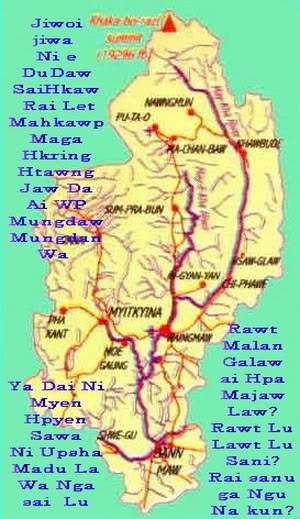By JULIA ZAPPEI / AP WRITER
KUALA LUMPUR—A United Nations delegation accused Malaysian police officers on Friday of torturing and abusing detainees to obtain confessions, saying suspects prefer prison rather than police custody and immigrant detention centers.
The government must also set up prompt and independent investigations into deaths in police custody, and should repeal or change strict security laws that allow indefinite detention without trial, the five-member UN group said at the end of its two-week visit.
Malick Sow, the delegation head, told reporters it found detainees were “subject to torture or ill-treatment in order to obtain confession or evidence in police detention.”
Sow said detainees, some held without the knowledge of their families and lawyers' representation, reported being locked up in small rooms without adequate food, and punched, kicked or drenched in dirty water.
“People prefer being in prisons rather than in police custody and immigration centers,” Sow said. “They feel more safe in prison.”
Malaysia is one of the most stable and prosperous countries in Southeast Asia. Although a democracy, it has a strong security apparatus often criticized by rights activists, including for its treatment of refugees and economic migrants from poorer countries in the region.
Thousands of people were detained in Malaysia under preventive laws, the delegation said. Criminal suspects should be charged in courts instead of being detained without charge, it added.
The security laws allow for the detention of a person for “any reason and in some cases the detainee is not even aware of the reason ... This is a classic case of arbitrary detention,” Sow said.
Another UN delegate, Roberto Garreton, said international rights conventions were not widely discussed or practiced in the country. “In Malaysia, there is no human rights culture,” he said.
The delegation is due to submit a preliminary report on its findings to the Malaysian government in September, then present its final report to the UN Human Rights Council, of which Malaysia is a member, in March next year.
Countries found to have failed to protect human rights can lose their seat.
The government is in the process of changing the laws, and amendments could be tabled in Parliament next month. But few details have been released. The government says it cannot repeal the laws because they are needed for national security.
The UN delegation also urged the government to stop keeping refugees, especially pregnant women and children, in detention centers in “overcrowded and unsanitary” conditions. It said immigrants should have access to lawyers at any time.
Raja Azahar Raja Abdul Manap, a senior Home Ministry official, said the government was in the process of upgrading the immigration detention centers.
“It's not meant for longer periods,” he said, adding some foreign governments failed to take prompt responsibility for their citizens.
Jun 19, 2010
Subscribe to:
Post Comments (Atom)
WUNPAWNG MUNGDAN SHANGLAWT HPUNG A NINGGAWN MUNGMASA
WUNPAWNG MUNGDAN SHANGLAWT HPUNG A NINGGAWN MUNGMASA
CHYE JU KABA SAI
Sa Du N'Gun Jaw La ai Majaw N'chying wa Chyeju Dum Ga ai,Yawng a Ntsa Wa Karai Kasang Kaw na N'Htum N'Wai ai Shaman Chye ju Tut e Hkam La Lu Nga mu Ga law




No comments:
Post a Comment